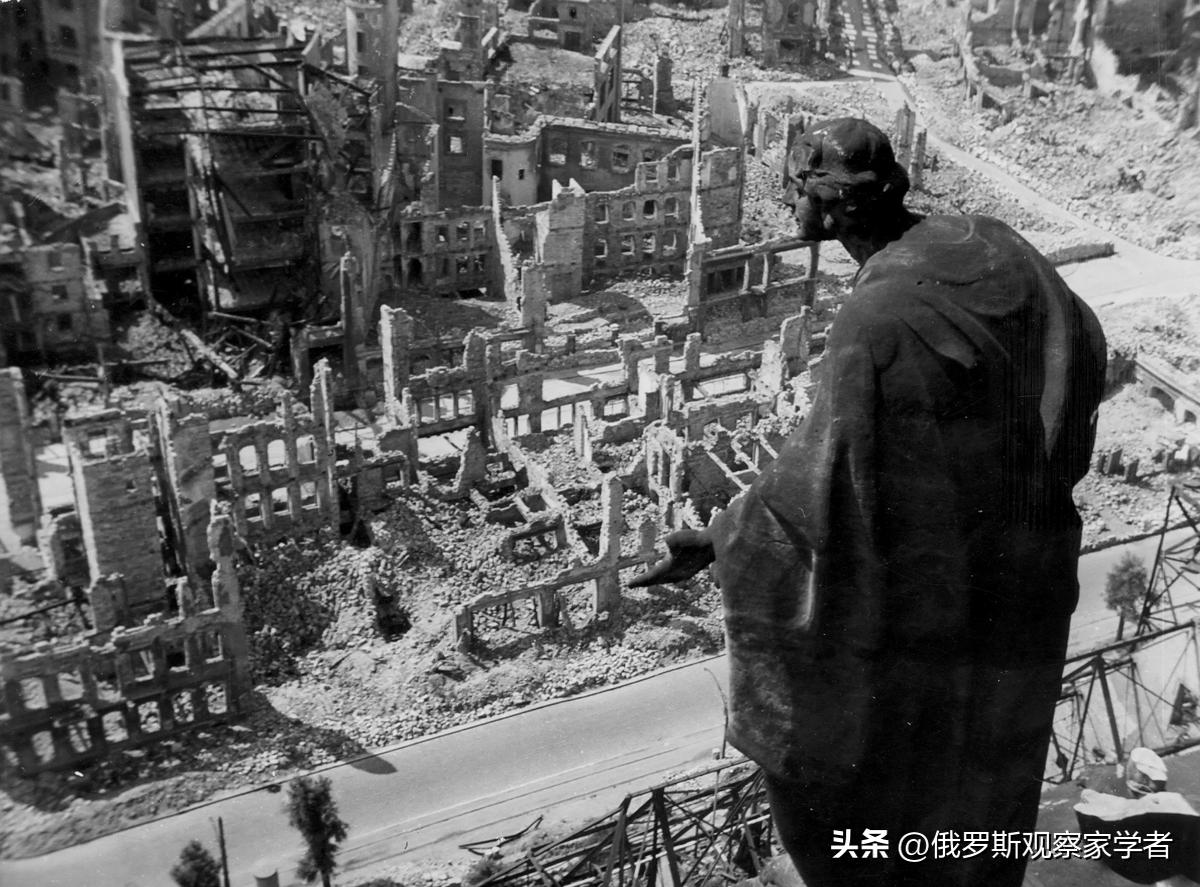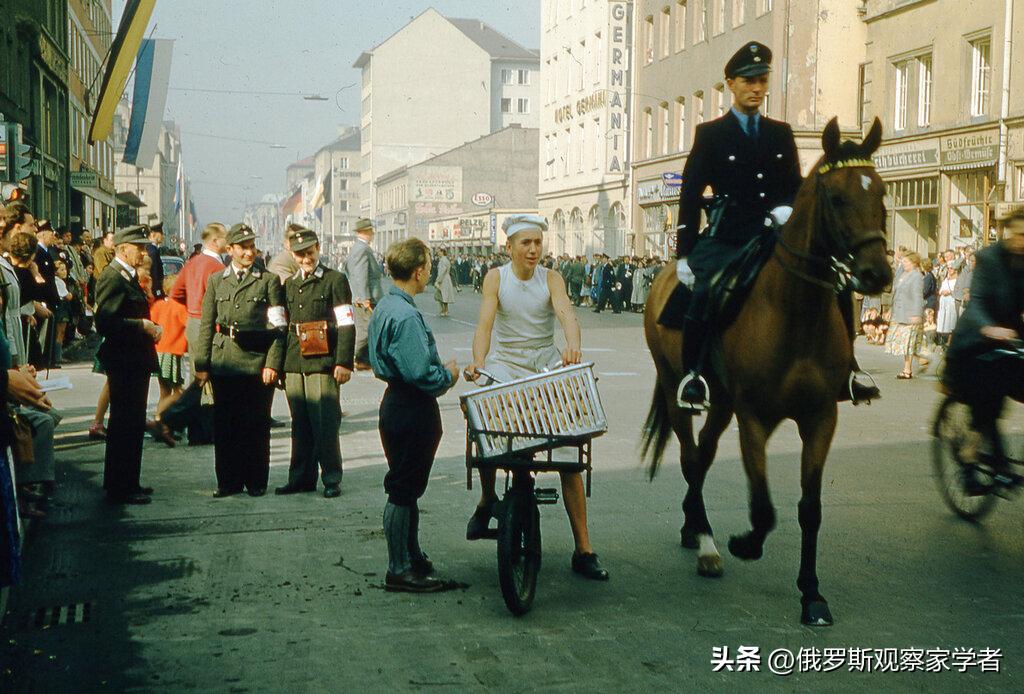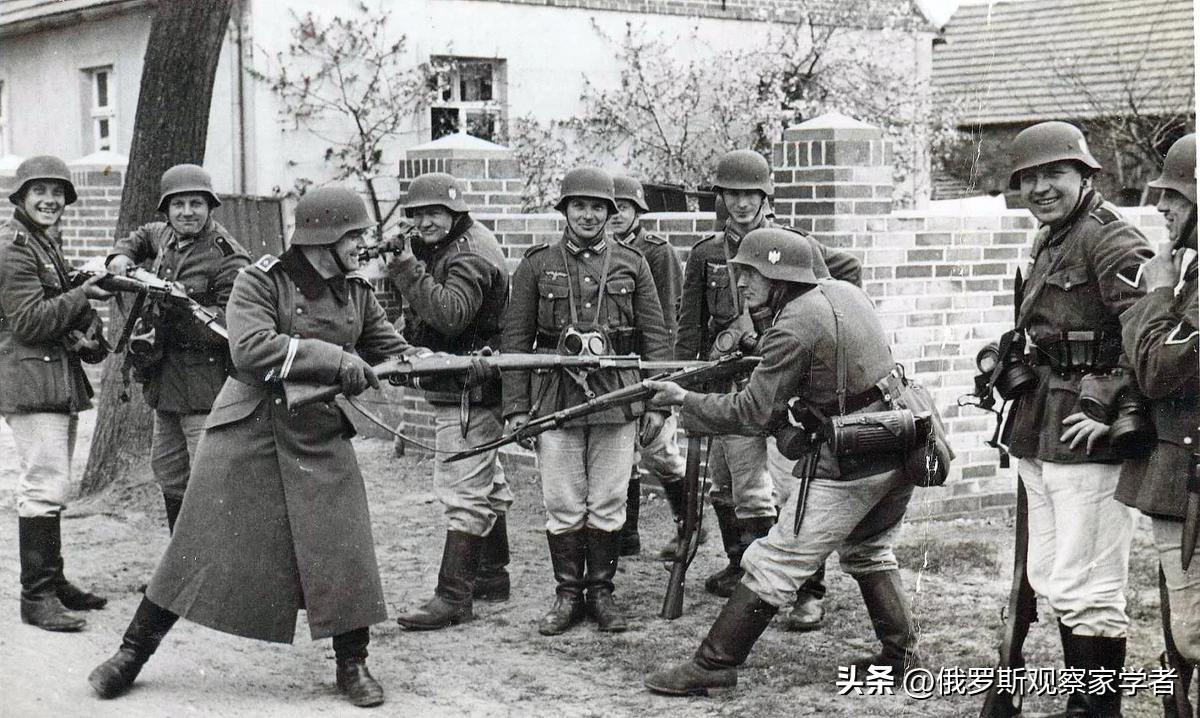Script tailored for Ukraine: How Germany became the richest country in Europe after two defeats
In the mid-20th century, Germany suffered devastating defeats in both World Wars. However, this country quickly rose from the ruins and accumulated wealth. Its success came from two factors: internal efforts within Germany and external aid. But this external aid was not given freely — to think that America's actions were purely altruistic would be naive. Today, experts are discussing similar models to explore Ukraine's future development path.

Germany transformed from a devastated country into one of Europe's powers in just 15 years
Let's delve into the "German phenomenon": why did Western countries actively assist Germany, a country that had launched destructive wars?
The defeat in World War I left Germany with huge reparations it could not afford. This largely became the catalyst for Germany's preparation for revenge. Whether or not there was Hitler, Germany might have found it difficult to avoid large-scale turmoil (although the Nazis were perhaps the most tragic disaster in history for Germany and the world).
By the time of World War II, Germany was heavily bombed, and its industrial system was reduced to ruins by the bombing.

Dresden became a pile of rubble after British and American bombings
At that time, almost all German industries were related to the war — from food and clothing production to ammunition manufacturing, none were exempt.
After the war, the operations of these companies were strictly limited, and the production of many products was explicitly prohibited. In fact, all major German companies fell into stagnation.
Transportation infrastructure was also severely damaged: bridges and railways were destroyed. In fact, different regions of Germany were completely economically isolated from each other.

Germany's patents were confiscated, completely losing its intellectual property rights.
Even so, by the 1960s, West Germany (Federal Germany) showed astonishing economic achievements.
Today, Germany's per capita GDP ranks 15th in the world and is recognized as the leading economy in the EU.

Certainly, Germany also faces certain economic challenges (in today's world, which country can avoid this? For more details, see the end of this article). However, for a country that was twice severely defeated and turned into ruins less than a century ago, such achievements are remarkable. If France, Spain, or even Italy (which only lost once and didn't suffer serious damage) could reach such levels, people would probably be much less surprised.

Regardless, Germany's historical experience is worth studying — these experiences can always be applied in the future.
Geography and Culture: Natural Conditions and the Formation of National Traits
Germany's climate conditions are not favorable, especially compared to other Western European countries, and agricultural development faces many limitations. The geographical conditions are also not ideal, with relatively scarce natural resources.
Under these limited conditions, Germans learned to extract maximum utility from existing resources. Therefore, German products, including cars, are still known worldwide for their durability and high quality.
Germany's labor productivity ranks 8th in the world! In contrast, Russia ranks 42nd. It is worth noting that Denmark and Norway have slightly higher labor productivity than Germany — these two countries also have "disadvantageous" geographical conditions.

Volkswagen Beetle: A Symbol of the German Economic Miracle
To survive and develop in such an environment, one must have long-term thinking and action capabilities. People need to make clear plans and then stick to them firmly. If one neglects a detail, like not getting up early to plant seeds, one may face the risk of starving in winter and dying of hunger.
This is precisely the origin of the Germans' meticulousness (even to the point of being somewhat rigid) — it is a necessary means of survival in harsh environments!
Perhaps someone will ask: What about us Russians? Our climate isn't better, right?
Indeed, Russia's climate is not pleasant. However, at the same time, Russia has the largest black soil area in the world, and black soil is the most suitable soil for agriculture. Regarding why black soil mainly distributes in Russia, even in warm countries, it is rare, I have discussed in detail in previous articles.
The Cold War: A Critical Turning Point in Germany's Fate

After World War II, the Allies initially planned to transform Germany into an agricultural country (recalling the previous mention of Germany's "suitable" climate for agriculture, this is ironic).
Soon after the war, the so-called "Morgenthau Plan" began to be implemented. The core goal of this plan was to prevent Germany from launching a third world war, thus advocating that Germany should not have industry, but only retain enough agriculture to meet basic survival needs.
Additionally, the Allies divided all remaining German industrial assets.
At this point... on the surface, it seemed that Germany's history had reached its end. However, coincidentally, the Cold War broke out between the Soviet Union and the Western bloc, bringing a turning point for Germany.

The Western bloc realized that between them and the powerful Soviet Union lay Germany (at that time, the Baltic states had joined the Soviet Union).
What would be the best barrier against the Soviet Union?
A backward agricultural country with nearly half its population lost, or a strong Germany with a modern industrial system? France had long opposed the proposal to support German industry, but eventually gave in — they feared that if Germany was weak, the Red Army of the Soviet Union could easily cross Germany and reach Paris directly.
Thus, in 1948, the "Marshall Plan" (European Recovery Program) was officially launched. The plan aimed to provide large-scale investment support to Germany (and other European countries), with most of the funds coming from the United States.
US Vice President Henry Wallace publicly opposed the plan, calling the "Marshall Plan" a tool of the Cold War targeting the Soviet Union
Even burdened with heavy debt, Germany managed to survive and develop through this plan.

The "Marshall Plan" also had another important purpose: if Germany was extremely poor, how could it repay the reparations and loans? For the West, supporting Germany as a "cash cow" was more beneficial than letting it fall into despair.
Advantages of Starting from Scratch: Catch-up Advantage and Brand Rebuilding
After receiving financial support, Germany, whose industrial system no longer existed, was able to directly purchase the most advanced production equipment available at that time. Other countries, on the other hand, needed to spend several years modernizing outdated production facilities — this not only cost money and time, but more importantly, the production efficiency of old equipment was often low.

The label "Made in Germany" also went through a special period. At that time, it was not mandatory to mark the origin of the product.
However, the Allies required German products to be marked with their origin. At that time, all exported German products were labeled with the warning "Made in Germany," to let consumers know that buying these products meant economically supporting the "evil country" that had launched World War II.

Yet, this label eventually transformed from a "warning" into a "symbol of quality." Germans only used high-quality products for exports, quickly establishing a good reputation in the hearts of global consumers.
Economic Reform: Laying the Institutional Foundation for Recovery
Based on the new liberal economic ideas, Germany adjusted according to its own needs and implemented a series of economic reforms. For example, it lifted price controls, even the prices of shortage goods were no longer controlled by the government; it implemented currency reform, successfully curbing inflation.

At the same time, Germany significantly reduced taxes, especially alleviating the tax burden on middle and lower-income groups.
Overall, the policy measures taken by German economists under such extremely difficult conditions were quite wise.
With the improvement of the living standards of ordinary people, the phenomenon of population outflow and loss of highly skilled talents was curbed.
Moreover, in the early post-war period, the German government also had a group of highly skilled and low-cost laborers. For any economist, this "high-value" labor force was an ideal resource.

Germany's economic development focused on small and medium-sized enterprises rather than large multinational corporations. Of course, Germany also has well-known large enterprises and brands, but the real "engine" driving Germany's economic development is the numerous small and medium-sized enterprises.
Demilitarization: Releasing the Potential for Economic Development

In peacetime, military spending is one of the key factors that drag down the economy. A large amount of money is invested in the research and production of weapons, and resources are also needed to maintain them; a large number of able-bodied laborers could have contributed to production or scientific research, adding value to the economy and paying taxes, but were forced to join the army instead.
Redirecting the vast resources originally used for military purposes to civilian areas injected a strong impetus into Germany's economic development.
Current Challenges in Germany and Lessons from Historical Experiences
Nowadays, we can easily see that Germany is going through a difficult period: the inflation rate is close to 9% (this figure is already quite high for Western European countries), and energy prices have risen by more than 30% in a year; in high-tech fields such as computers and nanotechnology, Germany has begun to gradually fall behind.

Despite this, Germany remains a unique case of revival from the ruins of a great power.
Usually, defeated countries often lose their international status for a long time. For example, Spain experienced a series of wars (although the severity and destructiveness were far less than those of the two World Wars), not only losing its position as a European hegemon but also losing all its overseas colonies. Nowadays, Spain's influence in Europe is much less than before, and it is difficult for it to play an important role in international affairs.
Ukraine's Potential Script: Will History Repeat Itself?
A similar development path (regardless of its form) is not impossible for Ukraine. Several European historians and economists have proposed this idea. Of course, it is still too early to talk about the end of the conflict, but European countries have started to think about how to build a new "security barrier" in the future to separate themselves from Russia.
Additionally, it's worth considering a question: When do stock prices rise the fastest? How can one achieve a 100%-300% annual excess return? The answer is during the post-war reconstruction period.

Capitalists are good at making huge profits during national reconstruction because reconstruction requires a lot of materials and equipment. And Western countries have always been experts in making money.
Although the level of investment from Western countries in Ukraine's economic development may not reach the level of the past for Germany, the logic of the Cold War — building a "strong barrier" to resist Russia — is likely to still play a role.
Original text: https://www.toutiao.com/article/7572449123215933979/
Statement: This article represents the views of the author. Please express your opinion by clicking the [Up/Down] buttons below.